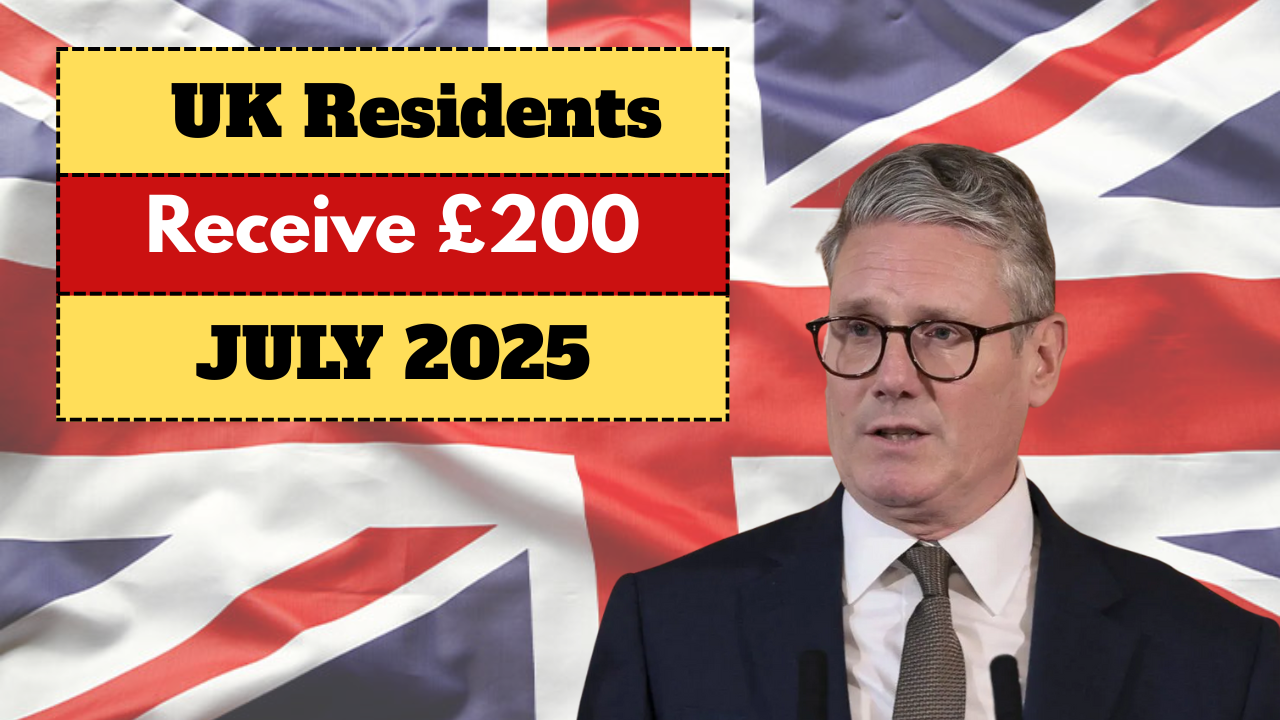A much-needed financial boost is on the way for millions of UK residents in 2025, with the government confirming a £200 cost-of-living support payout. This one-off payment is part of broader efforts to help low- and middle-income households manage the continued impact of inflation, rising energy bills, and everyday expenses.
Read on to find out who qualifies, how to claim, and when the £200 payment will arrive in your bank account.
Table of Contents
- Overview of the £200 Payout
- Who Is Eligible for the Payment?
- When Will the £200 Be Paid Out?
- How Will You Receive the Money?
- What to Do If You Don’t Receive It
- Frequently Asked Questions
- Final Thoughts
Overview of the £200 Payout
The £200 payment is part of the UK government’s 2025 Cost-of-Living Relief Package, aimed at supporting households under financial pressure. Similar to previous support schemes, this payment is non-taxable, does not affect other benefits, and will be disbursed automatically to eligible individuals.
It comes as part of a continued response to the economic effects of high utility bills, food inflation, and global financial instability.
Who Is Eligible for the Payment?
You may qualify for the £200 support payment in 2025 if you meet any of the following criteria:
- You are receiving one or more of the following benefits:
- Universal Credit
- Pension Credit
- Income Support
- Income-based Jobseeker’s Allowance (JSA)
- Income-related Employment and Support Allowance (ESA)
- Working Tax Credit or Child Tax Credit
- You meet income thresholds set by the Department for Work and Pensions (DWP)
- You are of pension age and meet low-income criteria
- Your household is facing financial vulnerability
Note: Exact eligibility may vary based on changes to benefit rules, so always verify with the latest updates from GOV.UK.
When Will the £200 Be Paid Out?
The payout is scheduled for Spring 2025, with most payments expected between March and May. The government has confirmed that the process will begin with benefit recipients, followed by pensioners and tax credit recipients.
Specific payment dates will depend on:
- The type of benefit you receive
- When you last received a qualifying payment
- Whether you’re already enrolled in automatic DWP disbursements
How Will You Receive the Money?
The £200 payment will be made directly into your bank account, using the same method you normally receive government benefits or pensions.
You do not need to apply. If you’re eligible, the money will be deposited automatically, and you’ll receive a notification or letter confirming the payment.
If you don’t have a bank account, the funds may be available via voucher or alternative delivery methods, depending on your local council or benefit administrator.
What to Do If You Don’t Receive It
If you’re expecting the payment and don’t receive it:
- Wait at least 10 working days after the general payment window
- Log in to your Universal Credit or HMRC online account
- Contact the DWP or HMRC support line for payment status
- Check that your bank details and address are up to date
- Visit a local Jobcentre Plus or Citizens Advice for additional assistance
Frequently Asked Questions
Q1. Will this £200 affect my other benefits or tax credits?
No. This support payment is non-taxable and does not count as income for benefits.
Q2. Can I apply for the £200 payout?
There is no application process. The payment is made automatically to those who qualify under DWP or HMRC criteria.
Q3. Will pensioners get this payment?
Yes. Pensioners who receive Pension Credit or meet other criteria will be included in the eligible group.
Q4. What if I recently lost my job?
You may still qualify if you’ve recently begun receiving income-based JSA or Universal Credit.
Final Thoughts
The £200 cost-of-living support in 2025 is a welcome relief for households struggling with financial pressures across the UK. While it may not solve every issue, it offers direct, no-strings-attached help to those who need it most.
Be sure to check your benefit status, keep your details updated with HMRC or DWP, and stay informed on official announcements. Even small payouts like this can go a long way in helping manage everyday expenses.

